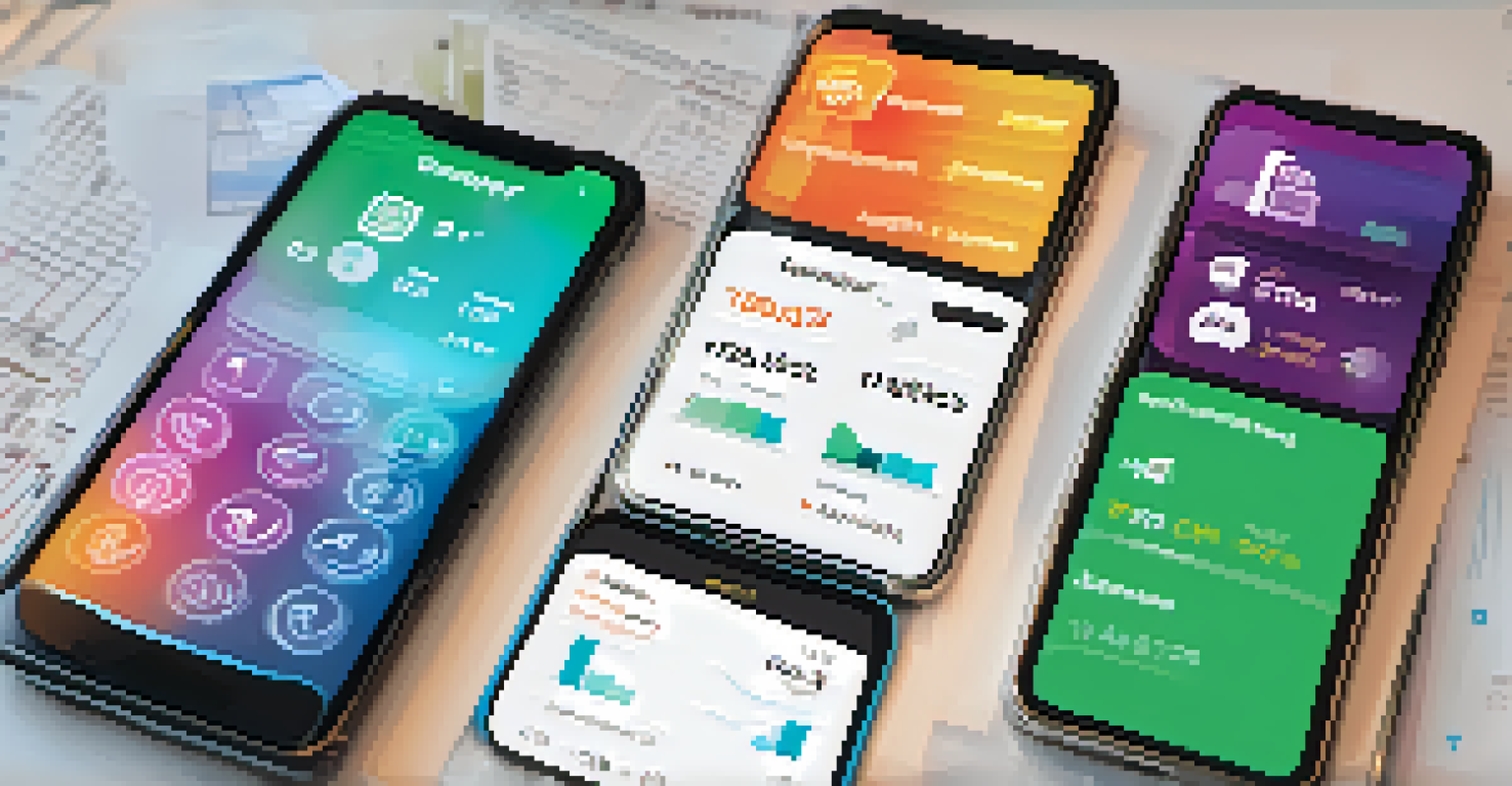Decentralized Finance (DeFi) Opportunities in Developing Regions

Understanding Decentralized Finance (DeFi) Basics
Decentralized Finance, or DeFi, refers to a financial ecosystem built on blockchain technology. Unlike traditional finance, which relies on centralized institutions like banks, DeFi operates on a peer-to-peer basis, allowing users to engage in financial activities directly. This means anyone with internet access can lend, borrow, or trade assets without intermediaries, making financial services more inclusive.
Decentralized finance is the future of finance, where individuals have full control over their assets and can engage in financial activities without intermediaries.
The beauty of DeFi lies in its accessibility. In developing regions, where banking infrastructure may be limited, DeFi can provide the necessary tools for individuals to manage their finances. For instance, a farmer in a remote area can access loans or insurance products directly from their smartphone, bypassing the lengthy processes often associated with traditional banking.
However, it's crucial to understand that while DeFi offers immense potential, it also comes with risks such as volatility and security concerns. Users must educate themselves about these risks before diving into this new financial frontier.
The Role of Blockchain Technology in DeFi
At the heart of DeFi is blockchain technology, which ensures transparency and security in transactions. This decentralized ledger allows for all transactions to be recorded and verified without the need for a central authority. In developing regions, where trust in institutions may be low, this transparency can foster greater confidence among users.

Blockchain also facilitates smart contracts—self-executing contracts with the terms directly written into code. This means that agreements can be automated, reducing the need for intermediaries and decreasing transaction costs. For example, a smart contract could automatically release funds to a supplier once goods are delivered, streamlining processes in local economies.
DeFi Enhances Financial Accessibility
Decentralized Finance allows individuals in developing regions to access financial services directly through their mobile devices, bypassing traditional banking barriers.
Moreover, blockchain technology can enable the creation of new financial products tailored to the needs of developing regions. From microloans to community-based insurance pools, the possibilities are vast and can significantly empower underserved populations.
Access to Financial Services Through DeFi
Access to traditional banking services remains a challenge in many developing regions, with a significant portion of the population unbanked. DeFi can bridge this gap by providing financial services via mobile devices, making it easier for people to enter the financial system. Imagine a community where farmers can save, invest, and secure loans without needing to travel to a distant bank branch.
Financial inclusion is not just about access to banking; it's about access to financial tools that can empower individuals and communities.
With DeFi, users can engage in activities such as staking, lending, and yield farming, often with minimal initial investment. This opens up opportunities for wealth generation that were previously unavailable to those in low-income communities. For example, a small business owner could lend a portion of their savings and earn interest, helping to grow their financial footprint.
Additionally, DeFi platforms often have lower fees compared to traditional banks, making transactions more affordable. This aspect is particularly beneficial for individuals and small businesses that operate on tight margins and need efficient ways to manage their finances.
Empowering Women Through DeFi
In many developing regions, women face significant barriers to accessing traditional financial services due to cultural and societal norms. DeFi has the potential to empower women by providing them with direct control over their finances. For instance, a woman entrepreneur can receive funding from a global pool of investors without needing male relatives to act as intermediaries.
Moreover, DeFi platforms often emphasize community and cooperation, which can create supportive networks for women. This sense of community can encourage women to participate actively in financial decisions and investments, fostering a culture of financial literacy. Consider a group of women pooling resources to invest in a local business—this could have a transformative effect on their community.
Empowering Women in Finance
DeFi provides women with direct control over their finances, fostering independence and creating supportive networks for financial decision-making.
By leveraging DeFi, women can build wealth, invest in education, and improve their overall quality of life. The rise of female-focused DeFi initiatives highlights the growing recognition of the importance of inclusivity in financial systems.
Risk Management and Security in DeFi
While DeFi presents numerous opportunities, it also comes with inherent risks that users must navigate. One of the primary concerns is the potential for smart contract vulnerabilities. If a bug exists in the code, it could lead to significant financial losses. Therefore, users should only engage with well-audited DeFi protocols and platforms to mitigate these risks.
Another risk involves market volatility, which can dramatically affect the value of assets. In developing regions, where financial literacy may vary, it's essential for users to understand the implications of investing in volatile assets. Educating individuals about these risks is critical to ensuring they make informed decisions in the DeFi space.
Additionally, users should be aware of the importance of securing their digital wallets and private keys. Cybersecurity threats are prevalent in the digital finance world, and taking steps to protect personal information can help safeguard assets.
Real-World Examples of DeFi Success Stories
Several real-world examples illustrate the transformative potential of DeFi in developing regions. For instance, in countries like Kenya, platforms like M-Pesa have already demonstrated the power of mobile money. Building on this foundation, DeFi solutions can further enhance financial inclusion by offering a broader range of services to underserved populations.
Another example is the rise of decentralized lending platforms that allow individuals to lend and borrow without traditional banks. In regions where access to credit is limited, these platforms can provide necessary funds to entrepreneurs looking to start or grow their businesses. This not only helps individuals but also stimulates local economies.
Understanding DeFi Risks is Crucial
While DeFi offers great opportunities, users must be aware of inherent risks like smart contract vulnerabilities and market volatility to make informed decisions.
Additionally, initiatives like blockchain-based remittance services are gaining traction, allowing people to send money across borders at lower fees. This can be particularly beneficial for migrant workers who wish to support their families back home, making remittances more efficient and cost-effective.
Future Prospects for DeFi in Developing Regions
The future of DeFi in developing regions looks promising, with increasing interest from both users and investors. As internet connectivity improves and smartphone adoption rises, more individuals will gain access to DeFi platforms. This could lead to a surge in innovative financial solutions tailored to local needs and conditions.
Moreover, governments and organizations are beginning to recognize the potential of DeFi to foster economic growth. Collaborations between traditional financial institutions and DeFi startups could pave the way for hybrid models that combine the strengths of both systems. Imagine a world where local banks offer DeFi services, expanding their reach and enhancing financial literacy.

Ultimately, the success of DeFi in developing regions will depend on education and awareness. By empowering individuals with the knowledge to navigate this new financial landscape, we can unlock the full potential of DeFi and create more inclusive economies.